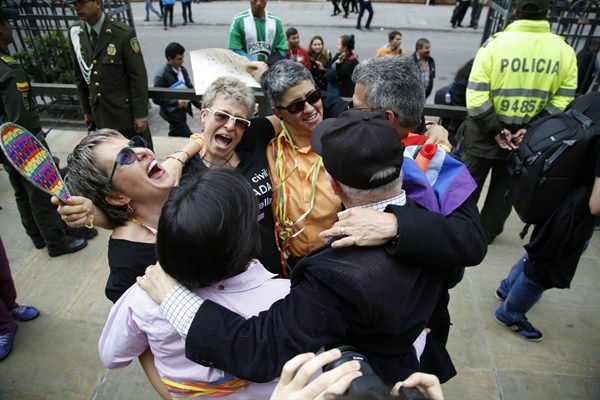Courts and legislatures have taken decisive steps to protect LGBT rights in Latin America. But there is a stark difference between the law and day-to-day realities.
On Tuesday, the Inter-American Court of Human Rights urged Latin American countries to legalize same-sex marriages and unions, responding to a 2016 petition by Costa Rica’s president, Luis Guillermo Solis, who has championed gay rights. The decision, one of the most sweeping court statements on same-sex marriage in history, appeared to be the latest sign that Latin America is becoming one of the safest regions in the world for LGBT people, at least legally. Over the past two decades, many countries in the region have seen a revolution in how the law treats sexual minorities.
Yet despite all the good news on the legal front, there is a stark difference when it comes to the day-to-day realities for many LGBT people in Latin America. Even in the countries that have adopted laws that uphold and respect LGBT rights, societal attitudes remain homophobic, and violence is rampant. In some Latin American countries, a conservative backlash, led by religious groups, is trying to block further change.

